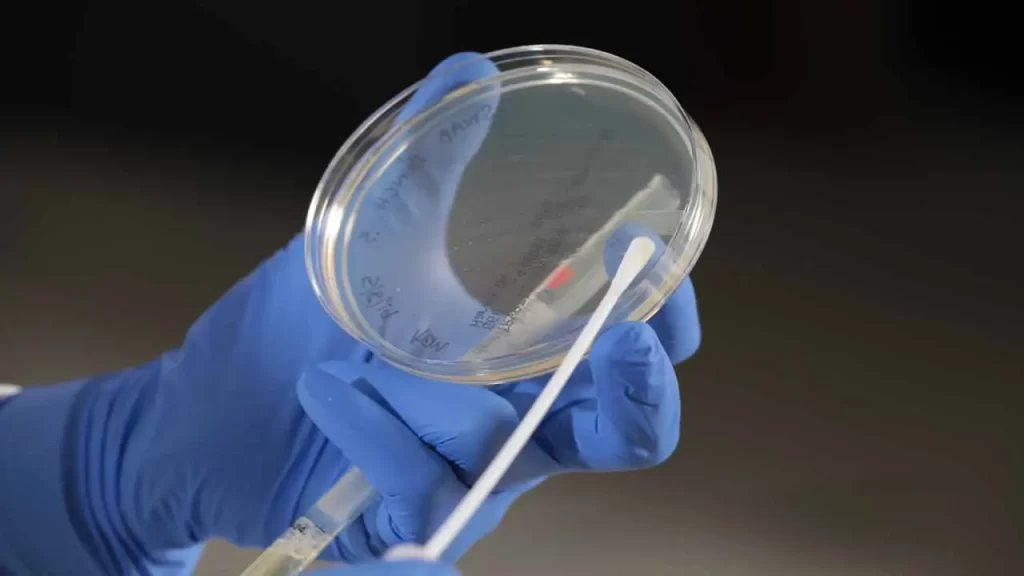This post was originally published on this site
Sponsored cannabis industry news from MJbizdaily.com

More than 85% of regulated marijuana products sold in Colorado’s adult-use market might violate health and labeling laws, according to a recent report by one of the state’s cannabis operators.
Frustrated by the apparent reluctance of the Colorado Marijuana Enforcement Division (MED) to test state-regulated cannabis products and punish those found to be breaking the law, Justin Singer, CEO of manufacturer Ripple, asked his staffers to visit Denver-area MJ retailers on Nov. 12 and purchase the flower, shake and pre-rolls brands “they would normally purchase.”
The company then sent unmarked, unadulterated samples – bud, pre-rolls and shake – to a state-regulated cannabis laboratory to have the products tested for potency, yeast and mold, pesticides and microbial contamination.
According to the lab results, only two of the 15 products purchased at Denver-area retailers complied with state regulations, and some were found to have dangerous levels of contaminants.
Out of 15 cannabis products purchased for the study, 12 (or 80%) reported THC content outside the 15% variance allowed under Colorado law.
“This was worse than I expected,” Singer told MJBizDaily.
“I thought a third of the products were going to fail, and I thought that was going to be bad enough to raise a ruckus.”
Singer first realized there was a problem with the state’s potency testing system about a year ago, when Ripple sent samples to three labs and found “everybody was out of band” in terms of results.
“That really set us off,” Singer said after sharing the self-funded study with MJBizDaily.
The study was first reported by CPR News.
Elizabeth Kosar, a MED spokesperson, told MJBizDaily via email that the Colorado Department of Public Health and Environment’s Laboratory Services Division is responsible for auditing licensed marijuana testing facilities.
“The Division takes a deliberate, science-informed and data-driven approach to all regulatory requirements, including the testing program,” Kosar said, adding that evaluating and revising testing requirements is an ongoing process.
“For example, over the past three years, required pesticide testing has evolved significantly to align with required pesticide testing in other state regulatory cannabis programs, and required hemp testing in Colorado.”
Contaminated cannabis
While Colorado law does not require labs to test marijuana specifically for coliform – a group of bacteria that includes E. coli and is found in animal and human intestines – 17 other state-regulated marijuana markets require coliform testing, so Ripple also paid for that test.
Four of the 15 cannabis samples tested revealed the presence of coliform bacteria above the state limit for industrial hemp, and one pre-roll was found to have 12,000 CFU (colony-forming units) per gram, 120 times the legal limit for hemp products.
“The licensee conducted tests that are not required by Colorado statutes or rules (pesticide components and coliform) but failed to note that pesticide testing and microbial testing are required by Colorado’s rules and enforced by the Division,” Kosar said.
Colorado’s marijuana testing protocol includes testing for microbials, she said, including “bacteria and fungi such as salmonella, e-coli … and total yeast and mold.”
In addition to microbials, Kosar said the state requires that marijuana be tested for:
- Water activity.
- Mycotoxins.
- Residual solvents such as acetone used in the manufacturing process.
- Heavy metals such as arsenic and lead.
- Pesticides.
“The coliform and aerobic bacteria absolutely, definitely, are the most concerning,” Jill Ellsworth, CEO of Denver-based cannabis decontamination company Willow Industries, told MJBizDaily after reviewing Ripple’s report.
“It’s essentially feces,” she said of coliform.
Two of the cannabis samples in Ripple’s shelf study – including the biggest coliform offender – also tested beyond the allowable aerobic plate count, which measures the number of viable microorganisms in a sample.
One pre-roll sample was shown to have 780,000 CFU per gram, meaning it had 78 times the legal limit of viable microorganisms.
“It’s appalling to see this still happening today, when we’ve been talking about this for over nine years,” said Ellsworth, who founded Willow Industries in 2015.
“More rules have been implemented, but … the enforcement isn’t there, and it’s not backing up those rules.”
Cannabis reference labs needed
To remedy the situation, Singer believes Colorado needs to follow other markets’ lead and create a cannabis-specific reference lab that tests marijuana products being sold at state-regulated retailers.
The integrity of Colorado’s market, according to Alison Bosworth, lead author of the Ripple study, “is not the (privately owned) labs’ responsibility.”
“It comes down to the state regulators and the enforcement of it.”
Bosworth points to Michigan as a cannabis market that is improving its product-testing and recall procedures – but only after Gov. Gretchen Whitmer abolished the state’s initial regulatory body and created a new one.
“Part of the shelf study was our way of having the analytical assessment and having the data to back these conversations,” Bosworth said.
“You could have all the rules in the world, but if the party who’s responsible for enforcing them is not doing their job … the behavior changes aren’t going to happen.”
Cannabis reference lab costs
Bosworth’s study outlines the exact costs that would be involved with establishing a reference lab with five employees testing 550 samples per month:
- Initial setup (lab equipment and infrastructure): $413,470.
- Annual operating costs (facility lease, materials, staff): $802,192.
The $1 million annual cost to establish and operate a reference lab would be 4% of the MED’s budget, according to Singer, who believes Colorado consumers are being defrauded of $275 million every year by false potency claims and other quality-control issues.
“That is ostensibly what the governor is there for, the attorney general is there for and their appointees are there for,” Singer said.
“They are just sitting there like, ‘Well, I can’t do this because somebody might yell at me.’ And, well, that person is actually trying to poison people.”
Singer said one pre-roll was left over after Ripple sent samples to the lab.
“I took it home and smoked it, and I smoked rat sh*t,” he said.
“So, I never want to hear from a dispensary who’s like, ‘Why are you talking bad about the industry?’
“Why did you feed me rat sh*t?”
False THC potency claims
Besides the obvious health issues associated with clearing marijuana products for sale that should fail for pesticides, yeast, mold and/or microbial contamination, Singer said the unreliable potency tests create an unfair marketplace where consumers often make purchases based on high-THC claims that are unfounded.
The potency levels printed on labels averaged 34.2% higher than what was discovered in the tests ordered by Ripple.
Those tests showed:
- Shake: All five shake samples purchased from Colorado retailers tested outside the 15% variance. Labels claimed an average of 59.1% more THC than found in lab tests.
- Pre-rolls: Four of the five pre-rolls tested were found to have THC levels more than 15% below the labeled amount, with a 28% average variance between label and tested THC.
- Flower: Three of five bud samples purchased were outside the 15% variance, with average THC levels 16% below what was shown on product labels.
“The competition is skewed,” Singer said. “It drives good products out of the market.”
As an example, Singer said a friend and Colorado-based cultivator who “does everything right” and “has worked really hard to cultivate 25% (THC) flower” has a tough time finding a retailer willing to carry the product because they are competing against brands that have lab results alleging 30% THC.
“If enough things are fraudulent, consumers will rightly assume that everything is fraudulent,” Singer said.
2024 MJBiz Factbook – now available!
Exclusive industry data and analysis to help you make informed business decisions and avoid costly missteps. All the facts, none of the hype.
Featured inside:
- Financial forecasts + capital investment trends
- 200+ pages and 49 charts highlighting key data figures and sales trends
- State-by-state guide to regulations, taxes & market opportunities
- Monthly and quarterly updates, with new data & insights
- And more!
How Colorado’s regulator should proceed
Beyond establishing a state reference lab, Singer recommended the MED should choose a single calibration standard, analytical method and sample prep method that all testing labs in the state must use.
This uniformity would ensure lab operators’ potency results were more in alignment, he said.
Both Singer and Willow’s Ellsworth encouraged the MED to inspect operators’ facilities.
“I used to own a cold-pressed juice company, and … I had the state regulating me very stringently, they were inspecting us constantly,” Ellsworth said, adding that knowing an inspection is possible prompts operators to ensure their facilities are clean and disinfected.
“If we want to mimic and be regulated like food, we should mimic that within our facilities.”
But Kosar of the MED pushed back on the assertion that licensed cannabis operators are not inspected.
“Any suggestion the Division fails to inspect licenses or otherwise enforce Colorado’s regulated marijuana program is wrong,” she said.
“In 2024, the Division conducted investigations into approximately 2,628 licenses, including 160 unique investigations into licensees regarding product safety.”
Once enforcement actions are concluded, resulting administrative steps are published on the MED website.
“The Division’s records confirm that it has been at (Ripple’s) premises at least five times between 2020 and 2024,” Kosar said.
Singer, for his part, said his company hasn’t undergone a food safety inspection since 2022.
“And even those inspections were restaurant-style inspections; the MED never created a manufactured foods-oversight program,” Singer said.
“The anomalies that are slipping through are egregious.”
Kate Lavin can be reached at kate.lavin@mjbizdaily.com.
Sponsored cannabis industry news from MJbizdaily.com
Colorado cannabis operator’s testing experiment yields damning pesticide, microbial and potency results










Leave a Reply